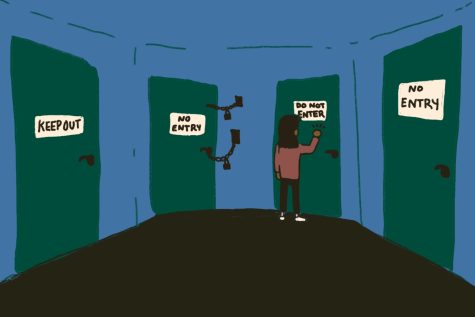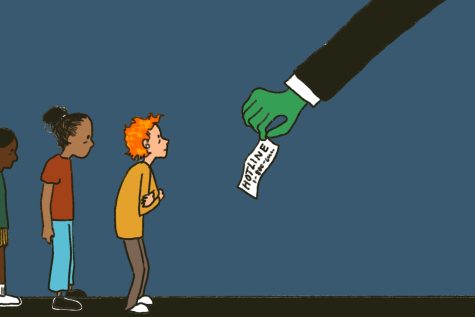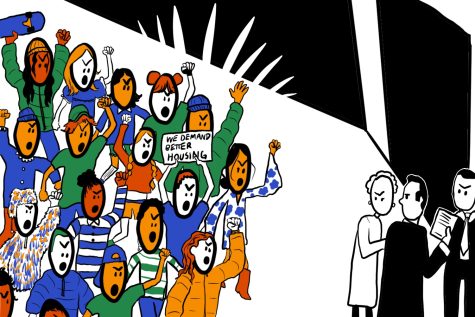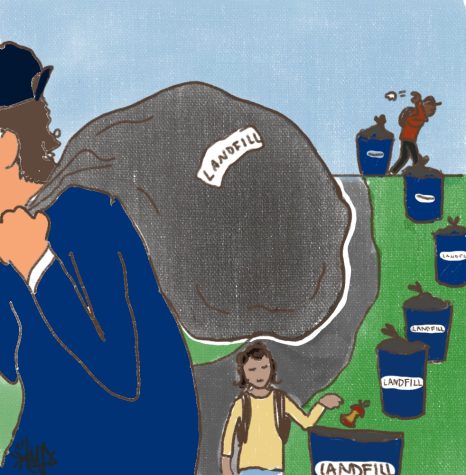Silent response to racial threats is no response at all
November 2, 2017
Early this October, Wes Richter made a threat against black students.
He was quickly reported to authorities at UVM, and our administrators waited one day to send a vague email to students.
Then they waited four days to name Richter.
He has been charged with disorderly conduct but has not been expelled, as far as we know. UVM has not released what Ritcher actually said, but rumors are circulating about hatred and violence that terrifying people on campus.
The UVM administration’s response may be more depressing than Richter’s threat. We, as students at UVM, are being educated about racism, so we know that violence and threats are parts of racial hatred.
We had faith that our school, our police and our community would protect those who might be hurt for being part of a marginalized group. That was naive of us.
UVM’s response to racism was weak. Wes Richter said something, creating frightening rumors that had students of color scanning crowds of white students for an angry face or a lumpy jacket while UVM deliberated over the proper language to respond with.
This was an act of hatred that had real consequences. In one of their emails, our administrators assured us of “effective protocols” that they decided were unnecessary to implement. UVM didn’t do very much besides explain why they weren’t doing very much.
Racism is not a necessary part of life. No one needs to be hated or hurt for their skin color. Racism continues because of people who allow hatred, namely, empowered white people.
Though very few of the students, faculty or staff at UVM are aggressively racist, nearly all of us have sat quietly by while international students are disrespected, or Latino workers exploited, or black lives threatened. Our silence makes us complicit.
These are our friends whom Wes Richter scared – our classmates, students trying to get an education. Skin color should never separate us. If we believe that our skin makes us different people with different responsibilities, we will continue to believe that “black problems” are not “white problems.” We will stay quiet. And this problem that we all live with will continue unchallenged.
Our school justified its ambiguity by claiming to be “following policies.” If these are the effects of such policies, they are wrong and ought to be changed. Their emails restated their commitment to “our shared values” of equality and community, but values are cheap without action.
Our administration has let us down through their silence and their excuses for that silence, thereby making space for rumors to frighten our friends and classmates.
To compound that, it is not respecting calls from people of color for real transparency and a meaningful response to hatred. The administration is not listening, especially not to students of color; they are reacting.
That must change if we want to make UVM a school that teaches and protects everyone.
Co-authors from “EC 53 The Political Economy of Race” course:
Class of 2018:
Folena De Geus
Halsey Payne
Class of 2019:
Andy Creighton
Aidan Fenstermacher
Sabrena Reek
Quinlan Anderson
Katie Bedell
Laura Hirsch
Class of 2020:
Mackenzie Rizio
Griffin Shaw
Kaya Sittinger
Tim Heffernan
















